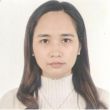

助教
クリスティーナ・アルバレス・ガルシア
My research focuses on developing advanced indoor location and activity recognition systems for nursing care facilities and hospitals by combining sensor-based technologies and leveraging context from Large Language Models (LLMs). During my PhD, I have deployed the FonLog mobile application and installed over 200 BLE beacons across four facilities in Kyushu to gather real-world data on staff and patient movements. This comprehensive dataset also includes signals from BLE beacons, and inertial sensors enabling the analysis of patterns in various healthcare settings. By integrating LLMs, I aim to tackle complex challenges such as difficult-to-classify room pairs and ambiguous activity patterns, which hinder accurate recognition. Furthermore, my novel data augmentation approach, relabeling, improves machine learning performance by addressing data imbalance issues caused by limitations in real-world data collection. Ultimately, my research strives to enhance staff-to-patient assistance, increase workflow efficiency, and foster a more responsive healthcare environment through precise activity and location tracking.
Context-driven indoor location and activity recognition systems merging multimodal data for smarter, more responsive patient care
Informatics / Ambient Sensing
Informatics / Ubiquitous Computing
indoor localization, ubiquitous computing, HCAI
Improving location and activity tracking in nursing facilities and hospitals by integrating Large Language Models (LLMs) with sensor data. Current activity and location recognition systems in healthcare face significant challenges, including limited datasets, improperly labeled data with missing timestamps, signal variability and contextual ambiguity. These limitations result in reduced accuracy and reliability, particularly in dynamic and complex environments like nursing facilities and hospitals. To address these issues, this research leverages LLMs, which excel at processing contextual information such as activity patterns, environmental factors, and temporal data. By integrating LLMs with sensor data, the approach aims to enhance the precision and adaptability of activity and location tracking, overcoming traditional system constraints.
Combining AI-driven systems with ambient sensing and ubiquitous computing to optimize clinical monitoring, streamline preventive care, and enhance interactions between patients and caregivers.
・Best Department Project – “A 1.8V 640MHz Phase Locked Loop as a Frequency Multiplier”, College of Engineering, MSU-IIT, Philippines, April 6, 2013
・Best Paper Awardee, 22nd World Conference on Applied Science Engineering and Technology, Singapore, September 27, 2019
・Excellent Paper Awardee, 5th International Conference Activity Behavior Computing, Kaiserslautern, Germany, September 2023
